
Keynote Speakers
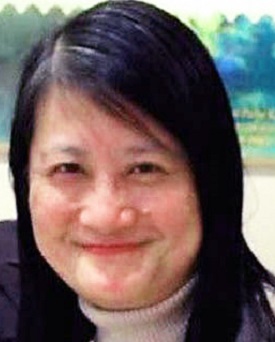
Professor Angel Lin (Simon Fraser University)
Social Structures, Everyday Interactions, and Subjectivity—Where (and How) Can We Start to Decolonize English Language Education?
About the speaker:
Angel M. Y. Lin received her doctoral degree from the Ontario Institute for Studies in Education (OISE), University of Toronto, in 1996. Her research and teaching have focused on classroom discourse analysis, bilingual plurilingual education, academic literacies, language across the curriculum, Content and Language Integrated Learning (CLIL), and translanguaging and trans-semiotizing. She has published six research books and over 100 research articles and book chapters. In 2018 Angel Lin moved from the University of Hong Kong to Simon Fraser University to take up the position of Tier 1 Canada Research Chair in Plurilingual and Intercultural Education.
Abstract:
When ‘decoloniality’ and ‘decolonizing’ have become words frequently used in congresss and journal publications in our field of Applied Linguistics/Language and Education, as well as on many academics’ lips, I start to worry about how they too can be easily co-opted as buzz words emptied of their critical meaning and actional potential, and become appropriated as discourses with symbolic capital to add to one’s portfolio for academic promotion.
In this presentation, I share about the pain, memories, hope and desire associated with experiencing colonizing acts across different timescales: in one’s everyday life (e.g. micro aggressions in social interactions), in how one’s own sense of self and the world (subjectivity) is shaped and reshaped (e.g. through academic socialization), and in embarking on what can be done to change the various social structures of (both colonial and other kinds of) domination and subordination. Then I’ll propose a tentative thinking and planning tool to work with teachers, students, administrators, and most importantly ourselves, to grasp at what it means/what it takes, and simultaneously begin to work, to ‘decolonize’ ourselves, our curriculum, our pedagogy, our scholarship and then gradually our field of English Language Education and TESOL.

Professor Jozef Colpaert (University of Antwerp)
Designing multimodal learning environments for transcultural communication in a globalized world
About the speaker:
Jozef Colpaert teaches Instructional Design, Educational Technology and Computer Assisted Language Learning in the Faculty of Social Sciences at the University of Antwerp. He is editor-in-chief of Computer Assisted Language Learning (Taylor and Francis) and organizer of the International CALL Research Congresss. His ongoing research lines focus on transdisciplinarity, multimodal learning environments, natural language decoding, and motivational task design. He is currently working on the empirical and theoretical validation of Educational Engineering, a novel instructional design and research method.
Abstract:
This presentation will consist of three parts. Jozef Colpaert will first explain the concept of the multimodal learning environment from an educational engineering perspective and how the design process can be considered research. He will then focus on multidisciplinarity as one of the main challenges in this research. He will present transdisciplinarity as a conceptualization method and introduce transcultural communication as a similar approach. Finally, he will show how transcultural communication can lead to more effective and enjoyable language tasks in a globalized world.
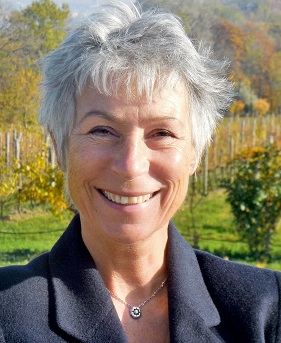
Professor Barbara Seidlhofer (University of Vienna)
The applied linguistics of education in English as a lingua franca
About the speaker
Barbara Seidlhofer is Professor of English and Applied Linguistics at the University of Vienna. Her research and teaching focus on English as a lingua franca (conceptualization, description, theoretical and applied implications), the nature of transcultural communication, and sociolinguistics and pragmatics more generally. Barbara Seidlhofer is the founding director of the Vienna-Oxford International Corpus of English (VOICE) – now available as VOICE 3.0 – and author of Understanding English as a Lingua Franca (Oxford University Press). She is past editor of the International Journal of Applied Linguistics and founding and honorary editor of the Journal of English as a Lingua Franca.
Abstract
In this presentation I will argue that as the realities of globalization have called for a radical change in thinking in so many ways, so how English language education has been traditionally conceived stands in urgent need of critical reappraisal. What is this ‘English’ that students need to be educated in knowing and using? It is obvious that it can no longer be defined as the language of particular native-speaker communities. It has expanded far beyond this limited communal use and has been appropriated as a lingua franca to meet the basic need for an international lingua franca. English as a lingua franca (ELF) has become an indispensable communicative resource in negotiating and even overcoming differences between people from different linguacultural backgrounds in such important encounters as academic conferences and higher education, business negotiations, diplomacy and peace-building, as well as migration, youth culture and tourism. ELF research is primarily concerned with how this resource is used communicatively: how the 'E' must be reconceptualized to fulfil its 'LF' function. This is not about what linguistic forms ELF takes and how these differ from standard language, but about the much more significant applied linguistic question of how communication functions in today's globalized world.

Professor Douglas Biber (Northern Arizona University)
Complexity in L1 and L2 English student writing: The development of phrasal discourse styles
About the speaker
Douglas Biber is Regents' Professor of English (Applied Linguistics) at Northern Arizona University. His research efforts have focused on corpus linguistics, English grammar, and register variation. Previous books include Register, Genre, and Style (Cambridge, 2009/2019), the co-authored Grammar of Spoken and Written English (John Benjamins 2021), and Studies of Grammatical Complexity (Cambridge 2016), University Registers (Benjamins 2006), and Multi-Dimensional Analyses of Register Variation (Cambridge 1988, 1995, 2018).
Abstract:
In studies of writing development, advanced academic writing is assumed to be grammatically complex, with elaborated structures (shown especially by a dense use of dependent clause structures). In contrast, spoken registers, especially conversation, are believed to have the opposite characteristics. Recent corpus-based research, however, has documented exactly the opposite patterns of use: conversation is structurally complex and elaborated, to an even greater extent than academic writing, especially in relation to the use of many types of dependent clauses. In contrast, the grammatical complexities of academic writing tend to be phrasal rather than clausal, resulting in a compressed rather than elaborated discourse style.
After contrasting the complexities of present-day conversation and academic writing, the present talk goes on to describe three corpus-based investigations of student writing development: one focused on papers written by university students across disciplines, tracking changes in grammatical discourse styles across their years of study; the second focused on the writing of L2-English students in a standardized exam context, tracking changes in their grammatical discourse styles across levels and task types; and the third tracking longitudinal patterns of change for advanced L2-English university students. In all three cases, students show dramatic development in their use of phrasal complexity devices, while in many cases showing a decrease in their use of dependent clause complexity devices. These patterns are interpreted relative to the typical patterns of use in conversation and professional academic writing, suggesting that students gradually acquire the preferred discourse styles of academic writing (often despite the overt instruction that they receive favoring the use of clausal elaboration). In conclusion, implications for academic writing instruction will be discussed.

Professor Jean-Marc Dewaele (Birbeck, University of London)
The emotions that drive Foreign language learning: A focus on China
About the speaker:
Jean-Marc Dewaele is Professor of Applied Linguistics and Multilingualism. He is former president of the International Association of Multilingualism and the European Second Language Association and he is General Editor of the Journal of Multilingual and Multicultural Development. He won the Equality and Diversity Research Award from the British Association for Counselling and Psychotherapy (2013), the Robert Gardner Award for Excellence in Second Language and Bilingualism Research (2016) from the International Association of Language and Social Psychology and the EUROSLA Distinguished Scholar Award (2022).
Abstract:
I will talk about an emerging area of research in the field of foreign language learning, which was triggered by the introduction of Positive Psychology (Dewaele, 2022; Dewaele et al., 2019). It has focused on the role of emotions in foreign language learning and their effect on performance, beyond the traditional focus on foreign language anxiety and includes new concepts such as foreign language enjoyment and foreign language boredom. As a result, a more nuanced understanding of the role of positive and negative learner emerged, underpinned by solid empirical research using a wide range of epistemological and methodological approaches.
References:
1. Dewaele, J.-M. (2022) Enjoyment. In S. Li, P. Hiver & M. Papi (Eds.), The Routledge Handbook of Second Language Acquisition and Individual Differences (pp. 190-206). London: Routledge
2. Dewaele, J.-M., Chen, X., Padilla, A.M. & Lake, J. (2019). The flowering of positive psychology in foreign language teaching and acquisition research. Frontiers in Psychology. Language Sciences, 10, 2128. Doi: 10.3389/fpsyg.2019.02128
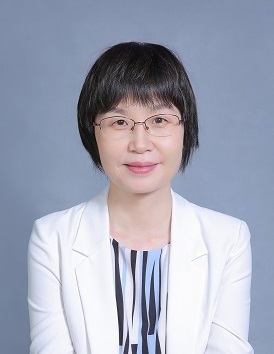
Professor Tang Jinlan (Beijing Foreign Studies University)
AI-assisted English language instruction: practices and implications
About the speaker
Jinlan Tang is the Dean and Professor in the Institute of Online Education, Researcher at Artificial Intelligence and Human Languages Lab, Beijing Foreign Studies University, China. Her research covers the areas of language assessment, teacher training, EFL teaching and learning in the e-learning environment. She also serves as the Co-Editor-In-Chief of Journal of China Computer-assisted Language Learning (JCCALL), and the Secretary-in-General of Computer-Assisted Language Learning Association, CACSEC (ChinaCALL). Her publications include over 40 research papers in international and national journals, one monograph, two co-authored books and three co-authored special issue international journals.
Abstract:
The rapid development of emerging technologies of big data, cloud computing, and artificial intelligence is changing the landscape of teaching, assessment and learning of English (TALE) tremendously. Arguably the application of technology has offered a viable means to promote education equity and inclusion, two of the UN sustainable development goals. This presentation will examine how the key pertinent AI technologies of automated speech recognition, translation, writing evaluation, virtual realities are applied to improve TALE and to promote educational equity in the Chinese mainland, drawing on first-hand experiences, classroom practices and research. Then it will discuss the main issues regarding the current use of AI, such as AI-assisted teacher development and ethical use of AI, with reference to a complex systems theory to enhance the understanding and development of AI-assisted teaching and learning ecology.
Invited Speakers for the Symposium on English Language Education in the Greater Bay Area
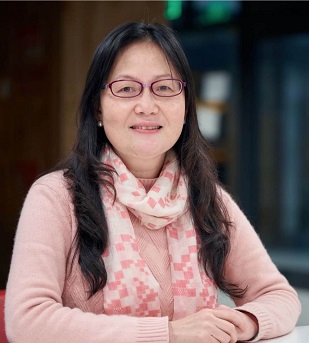
Professor Jin Lixian (City University of Macau)
Global and Intercultural Competence in ELE through Cultures of Learning
About the speaker:
Lixian Jin is Chair Professor in Applied Linguistics and Dean of the Faculty of Humanities and Social Sciences at City University of Macau, after being Chair Professor and having worked at University of Nottingham Ningbo China for over 4 years and at British universities in the UK for 30 years. She has taught linguistics, English language teaching, intercultural communication, qualitative research methods and clinical linguistics and assessments; and led international research teams in Britain, Singapore, Malaysia and China on ELT, intercultural learning, children with dyslexia and has developed language assessment tools in Chinese, Malay and Guajarati for children with language impairment. She has conducted numerous school and university English teacher training courses and workshops in China and worldwide. With over 200 publications her research has focussed on cultures of learning, intercultural communication, metaphor and narrative analysis, and bilingual clinical assessments.
Abstract:
Beyond the region, the Greater Bay Area of China plays important roles nationally and internationally in economic development and talent cultivation. Language learning here – and elsewhere - can create a rich resource to facilitate this progress. In current views, language education is not only about learning language skills, more broadly it enhances awareness of diverse cultures within global consciousness of how language mediates human affairs, together with intercultural competence in ever-changing local and international contexts, e.g. urgent issues of globalization and ‘planetization’ for sustainable development.
This presentation aims to highlight the need to develop global and intercultural communication competence within English language education by sharing Elicited Metaphor Analysis evidence, an applied linguistic approach, through the metaphor data collected from students in mainland China and Macau, compared with parallel data from other countries. The focus here is on the analysis of participants’ concepts of language and intercultural communication to examine how English language teaching can be explored for enhancing global and intercultural competence. A solution to some current issues is proposed: to understand students’ Cultures of Learning so that English language education includes implicit learning and teaching through cultures but which is improved further through repertoires of explicit learning about, from and through cultures of learning.
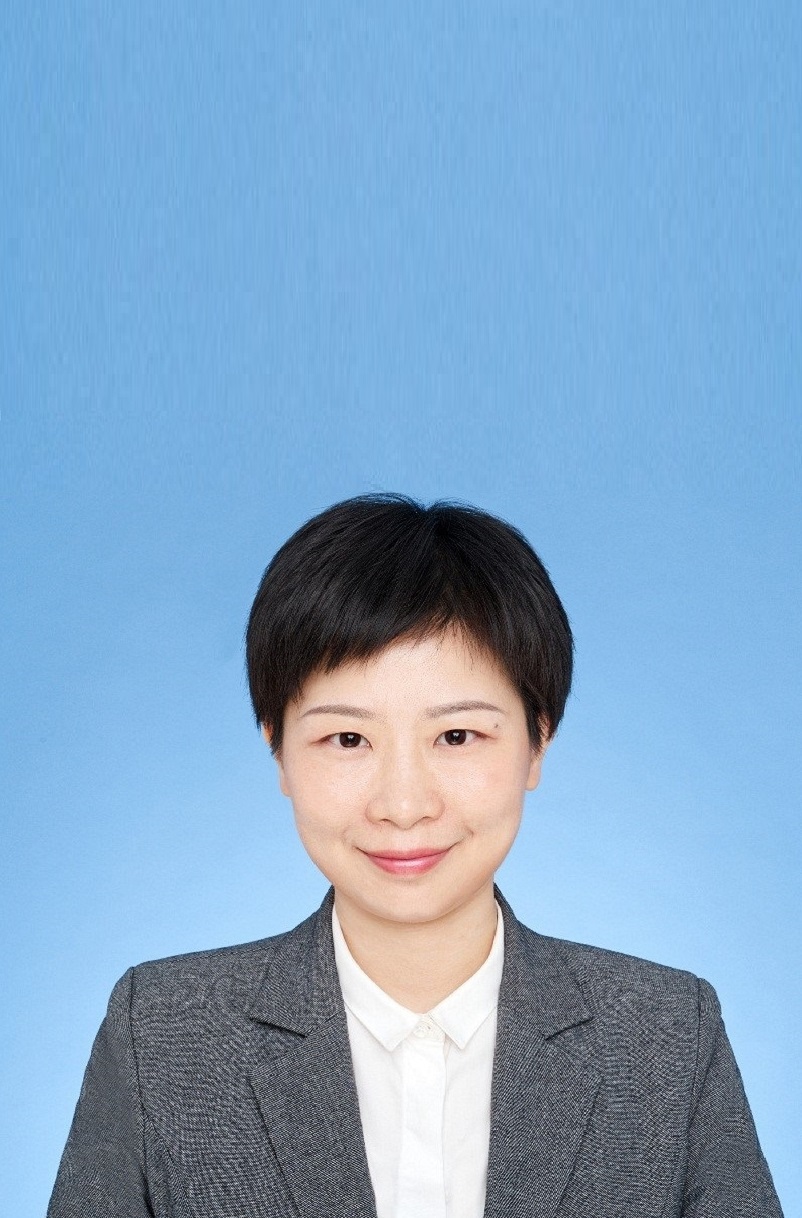
Professor Xu Yueting (South China Normal University)
Pre-service English teachers’ professional identity trajectories and mediating factors: A qualitative study from voluntary tutoring activities in Guangdong Province
About the speaker:
Yueting Xu received her Ph.D. from Faculty of Education, University of Hong Kong. She is currently Professor at School of Foreign Studies in South China Normal University, and Young Pearl River Scholar in Guangdong Province. She is also a highly cited scholar on Elsevier’s list in 2020 and 2021. Her research interests include teacher assessment literacy, teacher identity and teacher emotion. She has published extensively in international peer-refereed journals, such as Teaching and Teacher Education, Language Teaching Research, Assessment & Evaluation in Higher Education, TESOL Quarterly, and Teaching in Higher Education, etc.
Abstract:
The quality of pre-service teacher education is critically important to the future of our education, the Greater Bay Area is no exception. Central to this issue is how to help pre-service teachers construct their professional identity to make commitment to the profession. Within teacher education programs, presumably pre-service teachers would develop their professional identity mainly through taking courses and participating in teaching practicum. However, both activities have inherent shortcomings in shaping pre-service teachers’ professional identities. First, courses that pre-service teachers take are usually designed without a deliberate plan of professional identity crafting, and hence the effects of the courses on identity construction cannot be easily observed. Second, although practicum is proved the most important activity for professional identity construction, the timing of practicum is disadvantageous for sustainable identity construction. Given that practicum is usually implemented in the last year of teacher education programs, any initial construction of professional identity by pre-service teachers in this period is less likely to be reflected on and reconstructed in upcoming teacher education activities. Hence, creating more practicum-like opportunities at more appropriate timing for pre-service teachers is important to cultivating their professional identity.
Situated in a voluntary tutoring activity initiated by School of Foreign Studies (SFS) at South China Normal University (SCNU), we conducted a qualitative study to explore pre-service English teachers’ identity trajectories and their mediating factors to explore how such voluntary tutoring activities can provide great opportunities for pre-service teachers to construct their professional identity. Data were collected in a voluntary tutoring activity in early 2021 which was intended to improve the spoken English of high school students from rural areas of Guangdong Province. Three open-ended surveys were distributed to all participating pre-service teachers at SFS of SCNU and 142 valid copies were returned. Based on content analysis, findings show that these pre-service teachers’ identity trajectories converge on four types: upward, stable, fluctuating, and downward. Internal factors mediating identity trajectories include pre-service teachers’ imagination and planning of the voluntary tutoring activities, their behavioral, cognitive and emotional engagement in these activities, and the development of their sub-identities, while external factors include students’ active participation and their emotional engagement in these activities.
This study has implications for teacher identity research, pre-service teacher education practice across context, and future educational collaboration endeavors in Greater Bay Area. Voluntary tutoring activities and exchange practicum initiatives are suggested to promote pre-service teacher identity in this area.

Professor Li Huiyin (Guangdong University of Foreign Studies)
Coaching Helped me to Grow: Contesting EFL Teachers’ Professional Development
About the speaker
Professor Huiyin Li has been teaching at the School of English Education, Guangdong University of Foreign Studies, for over 18 years. She is also a former visiting scholar at Westminster University and George Fox University. She shows a strong interest in English teaching and teacher education and has developed two textbooks and published a dozen of journal articles in these areas. She participated as a lecturer in many local and provincial teacher development programs. She herself also took part in English-teaching contests at different levels and won both first and second teaching prizes locally and nationally.
Abstract
Previous research shows teacher coaching is an effective professional development practice. Different from traditional professional development practices, such as lectures, workshops, and seminars, teacher coaching offers one-on-one support focused on discrete skills to promote teachers’ professional growth and to improve student achievement. However, little is known about its applications and features in a Chinese context.
Based on the theory of activity and transferring of learning, a case study was conducted into a modified teacher coaching model in a Chinese context. An expert teacher was invited to hold online coaching sessions (due to the Covid-19 pandemic) to prepare some college English teachers for their teaching competitions in a Guangdong university, China. In total, 8 college English teachers were involved in the coaching sessions. Three follow-up online sessions with additional WeChat talks were held for each participant. Six college English teachers who attended the coaching sessions were interviewed. Their lesson plans were reviewed and two teaching videos were examined.
The findings revealed the expert model of teacher coaching was a successful professional development model in that it triggered changes in behavior and perception of teaching among the participants. All the interviewed participants not only expressed renewed enthusiasm in teaching, but realized the importance of the often-ignored role of designer as a teacher. The major features that contributed to the success of teacher coaching were learning by doing and practice with reflection.
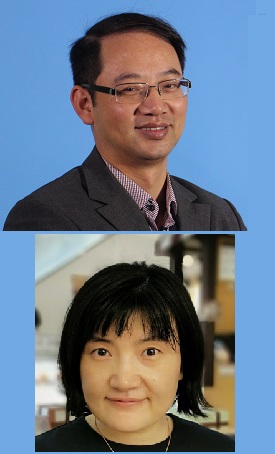
Professor Gu Mingyue & Dr Wang Lixun (The Education University of Hong Kong)
Digital Literacies and Information Technology in English Language Education in Hong Kong
About the speakers
Professor Gu Mingyue is Professor and Head of the Department of English Language Education at the Education University of Hong Kong. Her research interests include language-in-education policy, multilingualism and mobility, family language policy, digital literacies, and identity studies. She has published widely in the above fields. She is the co-editor of Critical Inquiry in Language Studies (Q1).
Dr Wang Lixun is Associate Professor in the Department of Linguistics and Modern Language Studies at the Education University of Hong Kong. His main research interests include corpus linguistics, English for Academic Purposes, Computer-assisted Language Learning (CALL), and multilingual education. He is the author of ‘Introduction to Language Studies’ (2011), ‘Trilingual Education in Hong Kong Primary Schools’ (2018), and co-author of ‘Is English an Asian Language?’ (2021).
Abstract:
In Hong Kong, the government has made great efforts to promote the use of Information Technology in education, and four Information Technology in Education Strategies have been implemented by the Education Bureau of Hong Kong SAR since 1998/99 to provide IT infrastructure for education and enhance the capacities of students and teachers to use IT for learning and teaching with the provision of professional development programmes and e-learning resources. Through these strategies, IT has been widely adopted in English language education in Hong Kong, and most Hong Kong English teachers use IT as normal everyday practice, and IT training is now an indispensable part of English teacher education programmes in Hong Kong. In this talk, we will present the major theoretical approaches to digital literacies that inform IT training and introduce research projects investigating digital literacies from different perspectives in higher education contexts in Hong Kong. We will then give an overview on what IT training has been provided to English major students at the Education University of Hong Kong, and we will report on a number of major projects that promote the use of IT in English language education. Research methods adopted include questionnaire surveys and interviews. The research findings suggest that students are highly motivate to engage in IT-enhanced language learning activities, and teachers are eager to equip themselves with the latest IT skills so as to become better English teachers.
Pre-Congress Workshops Speakers
Pre-congress Workshop 1: Corpus-based language learning and teaching

Dr Peter Crosthwaite (University of Queensland)
Mixed-methods research in corpus linguistics
About the speaker:
Peter Crosthwaite is a Senior Lecturer in the School of Languages and Cultures at UQ (since 2017), having formerly been an assistant professor at the Centre for Applied English Studies (CAES), University of Hong Kong (since 2014). He holds an MA TESOL from the University of London and an M.Phil/Ph.D in applied linguistics from the University of Cambridge.
His areas of research and supervisory expertise include corpus linguistics and the use of corpora for language learning (known as 'data-driven learning'), as well as English for General and Specific Academic Purposes. He is the author of the monograph 'Learning the language of Dentistry: Disciplinary corpora in the teaching of English for specific academic purposes' as part of Benjamins' Studies in Corpus Linguistics series (with Lisa Cheung, published 2019), as well as the edited volumes 'Data Driven Learning for the Next Generation: Corpora and DDL for Pre-tertiary Learners' (published 2019) and 'Referring in a second language: Reference to person in a multilingual world' (with Jonathon Ryan, published 2020) with Routledge.
His previous work experience includes consultancies and editorial positions with publishers including Cambridge University Press (CUP), and He is a co-author on CUP's latest IELTS series 'Mindset for IELTS' (Level 1 & 2). He is also currently serving as Associate Editor for the Q1 Journal of English for Academic Purposes, as well as on the editorial boards of IRAL, System, and Applied Corpus Linguistics, a new journal covering the direct applications of corpora to teaching and learning.
Abstract:
Corpora are principled collections of searchable electronic text, representative of authentic language-in-use. The varied and interdisciplinary research possibilities afforded by corpus linguistics also give rise to a range of research methods adopted both within corpus linguistics studies and those of cognate fields that seek to apply the use of corpora to enhance their own research agendas. This presentation distinguishes between mixed-methods CL studies involving both quantitative and qualitative analytical procedures, and studies involving CL methods in combination with other experimental or analytical paradigms that may be completely quantitative or qualitative in nature, or somewhere in between. It is apparent that corpus linguistics, as a field, has embraced a great deal of methods typically used in other disciplines in order to enhance the nature of the ‘counting’ that corpus linguistics is so good at. Likewise, many other disciplines have harnessed the unique potential of corpora to provide insights into language-related phenomena that would have not been possible without corpus data, corpus tools, and corpus linguists. Through continued innovations in mixed-methods CL research, corpus linguists are not only breathing new life into the field, but also enhancing - and in some cases reinventing - many others.
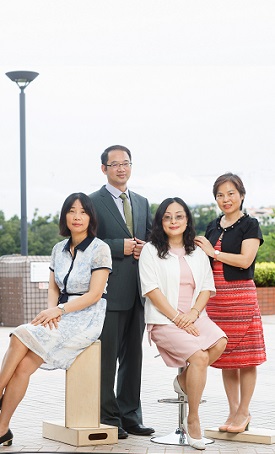
Dr Ma Qing, Dr Wang Lixun, Professor Lee Fung King Jackie & Dr Chen Hsueh Chu Rebecca (The Education University of Hong Kong)
Helping teachers to teach with corpora: The Corpus-Aided Platform for Language Teachers (CAP)
About the speakers:
Dr Ma Qing, Angel is currently Associate Professor at the Department of Linguistics and Modern Language Studies, The Education University of Hong Kong. Her main research interests include second language vocabulary acquisition, corpus linguistics, corpus-based language pedagogy (CBLP), computer-assisted language learning (CALL) and mobile assisted language learning (MALL).
Dr Wang Lixun is Associate Professor in the Department of Linguistics and Modern Language Studies at the Education University of Hong Kong. His main research interests include corpus linguistics, English for Academic Purposes, Computer-assisted Language Learning (CALL), and multilingual education. He is the author of ‘Introduction to Language Studies’ (2011), ‘Trilingual Education in Hong Kong Primary Schools’ (2018), and co-author of ‘Is English an Asian Language?’ (2021).
Dr Jackie Lee is Professor (Practice) in the Department of Linguistics and Modern Language Studies at the Education University of Hong Kong. Her research interests include grammar teaching, language and gender, experiential learning and teacher education.
Dr Rebecca Chen is Associate Professor in the Department of Linguistics and Modern Language Studies at the Education University of Hong Kong. Her research interests include inter-language phonology, experimental phonetics, third language pronunciation learning, and computer-assisted pronunciation learning. Recently Dr Chen and her research team have completed the construction of three publicly accessible corpus-based pronunciation learning websites.
Abstract:
A corpus provides extraordinarily rich and flexible resources for self-learning and can guide students in finding answers to their language queries. Although corpus linguistics has become mainstream in language research, a corpus-based language teaching approach remains largely unknown to the frontline teachers due to various reasons. In the past few years, our EdUHK corpus team have been working towards bridging the gap between corpus linguistic research and teachers’ teaching practice by introducing a corpus-based language pedagogy (CBLP) to English teachers in Hong Kong, mainland China and elsewhere. In this presentation, we will focus on an award-winning website, The Corpus-based Platform for Language Teachers (CAP) (https://corpus.eduhk.hk/cap/), and demonstrate how we theorised CBLP and enacted CBLP training for in-service and pre-service English teachers through the learning and teaching resources we created on the CAP website. The CAP website serves as the ideal pathway to transfer our expertise in corpus linguistics to the broad teacher community in Hong Kong, mainland China and other regions/countries. We will first provide the theoretical framework for CBLP and then use concrete examples from the CAP website to show how we implemented the CBLP training for our target participants to help them develop competence to learn and teach with corpora.
Pre-congress Workshop 2: Technology-enhanced language learning and teaching
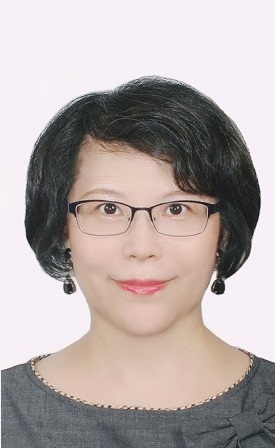
Professor Lan Yu-ju (National Taiwan Normal University)
Game-based 3D virtual language learning environments
About the speaker:
Yu-Ju Lan is a Research Chair Professor in the Department of Chinese as a Second Language at National Taiwan Normal University. She is currently the Editor-in-Chief of Educational Technology & Society, Associate Editor of Language Learning & Technology, and on the editorial board of Ampersand. Her research interests include language learning in virtual worlds, mobile learning, and online synchronous teacher training. She was awarded the Outstanding Research Award by the Ministry of Science and Technology (MOST), Taiwan, in 2022.
Abstract:
Play plays an important role in human beings’ language development, irrespective of age. Games are an effective type of tool for learning with which students can explore alternative decisions and actions without the risk of failure they might encounter in the real world. Furthermore, good language games in a second language (L2) classroom should be (1) based on reality, (2) based on learning goals with doable challenges, (3) fun, interesting, and motivating, (4) interactive, and (5) offering players the control over their destiny. Additionally, based on the perspectives of sociocultural second language acquisition (SLA), authentic contexts and social interaction are essential for L2 learners’ successful acquisition of the L2. Given the specific features of virtual reality (VR)—creation, immersion, and interaction—with a platform to create authentic contexts and the capabilities to support social interaction, VR has enormous potential for providing the essential components of successful FL learning, namely (1) learner’s active involvement, (2) authentic contexts, and (3) meaningful and social interaction when the learning activities are learner-centered. The purposes of creating language games in VR are twofold: (1) to facilitate the accomplishment of language pedagogical goals; and (2) to encourage L2 learners to continually replay the games without losing interest. In this workshop, I will briefly introduce the 3D language learning environments, followed by three VR tools: Google Translate, Assemblr, and Second Life. The demo includes tutorials on the basic functionality of the tools and its application for language learning purposes. Participants will learn how to create task-based learning activities in VR to promote learners’ motivation and performances.
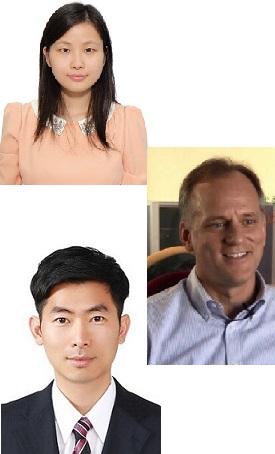
Dr Zou Di, Dr Lee Ju Seong & Dr Timothy Taylor (The Education University of Hong Kong)
E-resources for technology-enhanced language learning and teaching
About the speakers:
Dr Di Zou is an Assistant Professor at the Department of English Language Education. Her research interests include technology-enhanced language learning, game-based language learning, virtual teaching and learning, and artificial intelligence in language education.
Dr Ju Seong Lee is Associate Head and Assistant Professor in the Department of English Language Education. His recent research focuses on integrating technology and positive psychology into formal school settings.
Dr Timothy Taylor is Associate Head of the Department of English Language Education at the Education University of HK and Chair of the Hong Kong Curriculum Development Council Committee on English Language. He works extensively on projects in partnership with local primary and secondary schools in Hong Kong.
Abstract:
Dr Zou will introduce the basic features and functions of Flip and share three ways of using it to increase students’ online engagement. She will demonstrate how to build rapport with students and guide them to conduct reflection and peer assessment using Flip, at the same time providing meaningful oral practice opportunities. Dr Lee will introduce H5P, a powerful tool for increasing student interaction and engagement in teacher-authored learning materials. H5P is an open-source tool for creating interactive videos, quizzes, presentations, and other kinds of activities. It can be adapted to many learning levels and types of activities and can offer students immediate feedback. Dr Taylor will share examples of online English language learning resources that were tailor-made for primary learners of English in Hong Kong during the COVID era. The resources include e-books and online activities designed to provide support for both classroom and self-guided learning during periods of online learning. The resources demonstrate how both Flip and H5P activities, well-suited for individual teachers, can also be integrated into materials designed for the school-based curriculum or for large-scale projects.
Pre-congress Workshop 3: Machine Translation
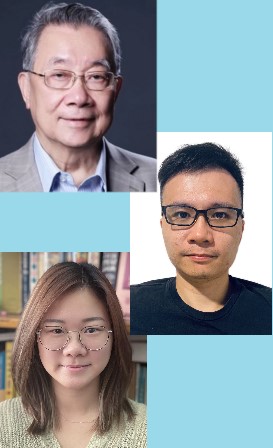
Professor Benjamin Tsou Ka Yin (City University of Hong Kong), Mr Elvis Yiu & Miss Kelly Mak (Chilin (HK) Ltd.)
Machine Translation Post-editing and the Role of Big Data in Technical Translation
About the speakers
Benjamin T'sou is Emeritus Chair Professor, City University of Hong Kong; Adjunct Professor, Hong Kong University of Science and Technology, and a member of Académie Royale des Sciences d’Outre-Mer (Belgium). Since 1995, his team has been cultivating a synchronous corpus on Linguistics Variations in Chinese, LIVAC, (https://en.wikipedia.org/wiki/LIVAC_Synchronous_Corpus), and more recently a big database of 300+K Chinese-English parallel patents, Patentlex, (https://patentlex.chilin.hk/). His recent publications include Quantitative and Computational Studies on the Chinese Language, Linguistic Corpus and Corpus Linguistics in the Chinese Context, “Bilingual Multi-word Expressions, Multiple-correspondence, and their Cultivation from Parallel Patents: The Chinese-English Case”, and “Some Basic and Salient Linguistic Features Across Chinese Speech Communities from a Corpus Linguistic Perspective”.
Elvis Yiu is a Software Engineer at Chilin (HK) Ltd. He has extensive experience working as a Mechanical Engineer as well as in other areas of the STEM sector, and is currently interested in Natural Language Processing. He holds a master's degree in Data Analytics and Artificial Intelligence from the Hong Kong Baptist University and a bachelor's degree in Mechanical Engineering from the Hong Kong Polytechnic University.
Kelly Mak works as a Junior Linguist at Chilin (HK) Ltd. She holds a bachelor’s degree in Linguistics and Language Application from the City University of Hong Kong, and her research interests are in Natural Language Processing.
Abstract:
Developments in the fields of computer science and computational linguistics, along with big data, have impacted traditional TESOL as well as the translation industry, as can be seen in the escalation of CALL (Computer Aided Language Learning) and CAT (Computer Assisted Translation) products respectively. Recent advances in machine translation have been encouraging for simple tasks where high accuracy is not required. However, they have also highlighted the new need for a timely shift from focusing on the translation process to the Post-Editing of Machine Translation (MTPE) output for serious and high-valued documents in many legal, financial, and technical domains to ensure optimal fidelity and fluency of the final translation. As such, MTPE offers useful cross-fertilization possibilities between the two fields, especially when technical language is concerned. The feedback loop in language production is integral to writing among the four basic language skills of reading, listening, writing, and speaking, and is shared in both kinds of endeavors. It can benefit similar optimalization efforts in both areas. The treatment of multiple renditions in the Chinese or English target languages will be a main concern of this presentation. We shall look at error checking, error correction, and the subsequent improvement measures which involve technical language. An opportunity will be offered to the congress participants to gain hands-on experience with our system of MTPE under development.




